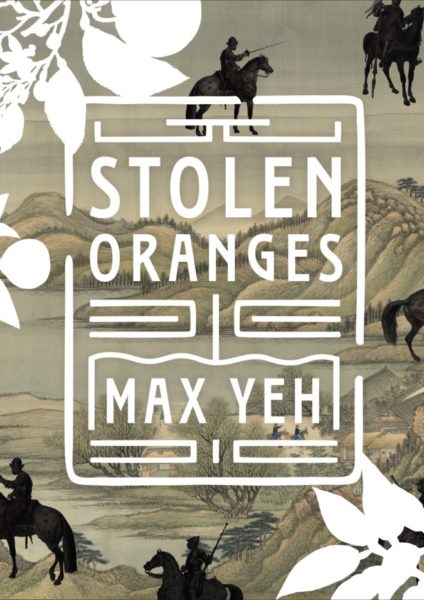 Stolen Oranges, a new novel by Max Yeh, is a whirlwind of a historical tale, recounting a series of letters written between Miguel Cervantes (of Don Quixote fame) and a Ming emperor as told by their discoverer–a Chinese American historian. I was first drawn to this novel by the back cover description: “this dazzling meditation on the intricacies of memory, language, and time.” And when it showed up at my doorstep, by the small size of the book itself, about the size of my hand.
Stolen Oranges, a new novel by Max Yeh, is a whirlwind of a historical tale, recounting a series of letters written between Miguel Cervantes (of Don Quixote fame) and a Ming emperor as told by their discoverer–a Chinese American historian. I was first drawn to this novel by the back cover description: “this dazzling meditation on the intricacies of memory, language, and time.” And when it showed up at my doorstep, by the small size of the book itself, about the size of my hand.
I hadn’t even opened the book yet. Yeh’s story begins with the Chinese American historian, who is writing a historical book (which is to say that it reads like non-fiction, though it is fiction), introducing the circumstances that led him to discover and then translate a series of letters between Cervantes and Emperor Wanli. It is, in a particular style of history writing, a bit dense at times, but worth meandering through even if one, such as I, lack understanding of nearly all references to Don Quixote. But I found the gems to be in these letters that go back and forth. Both the Emperor and Cervantes’ letters offer ruminations on the promised topics of memory, language, and time in manner that is deeply philosophical, somewhat long-winded, yet mostly accessible.
Take this passage on words and language as an example:
Words are an empty palace we are born into, the halls and corridors to which, nooks and crannies, windows and doorways, were long ago constructed by innumerable and unknown builders and planners and workmen whose unknown and unknowable intentions and meanings are set in stone and wood and whose spaces form our whole lives, while we live so conformed under the illusion that we are ever building the palace the way we want it.
Perhaps out of context it is slightly less legible, but peppered throughout these fictional letters are intriguing nuggets about humanity. Though technically a novel, it is much more akin to a philosophy book, even more so than a history book. This is not what I would call an easy or fast read, but Stolen Oranges is rewarding for those interested in a well-executed deep dive into ideas and theories about language and being.








